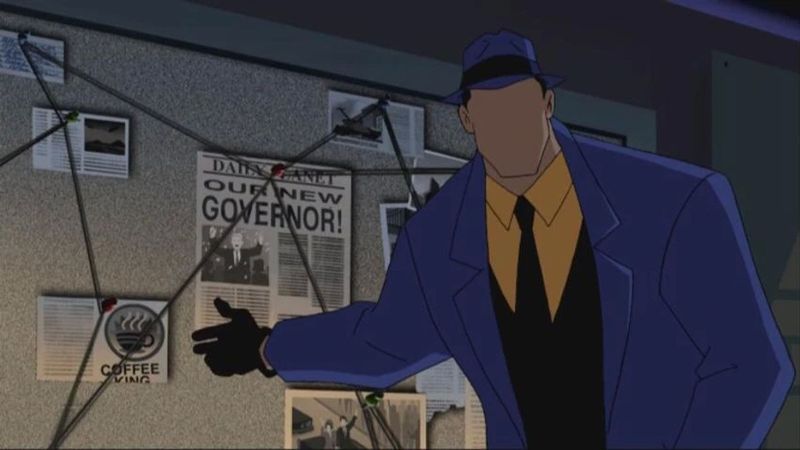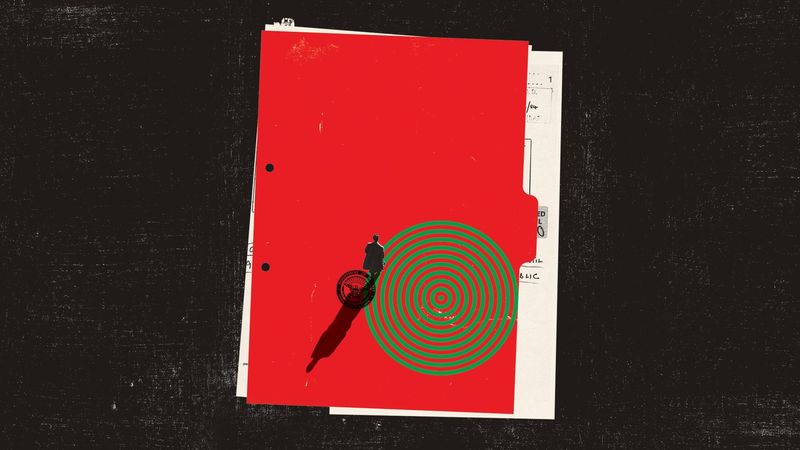We’ve all been there: stuck in a meeting, a group chat, or a painfully awkward dinner conversation, silently nodding while someone confidently spouts off… complete nonsense.
There’s always that one person who can act like a walking Wikipedia, but whose search history is just a list of memes and half-baked TikToks. Somehow, their voice gets louder, their eyebrows get bolder, and suddenly everyone around the table is expected to nod along.
It’s honestly impressive how far you can get with confidence alone. The tone? Authority. The facts? MIA. The energy? “Trust me, bro.”
Aquí tiene 18 classic one-liners people drop when they’re totally out of their depth—but trying really hard to sound like they’re not. Bonus points if they use finger guns, vague stats, or say it louder to make it sound more “true.”
1. “It’s just common sense.”
“It’s just common sense,” she says, channeling the spirit of every opinionated aunt at Thanksgiving. No evidence, no context, just pure, unfiltered confidence masquerading as wisdom.
What’s funny is that “common sense” changes depending on who you’re talking to. What seems obvious to one person might be a total mystery to someone else. Suddenly, someone’s hot take becomes the gold standard—at least until someone else pipes up with a better story.
If you’ve ever felt shamed for not agreeing, you’re not alone. People use this phrase to shut down real conversation, all while pretending they’ve got life totally figured out. Newsflash: If it was that “common,” we wouldn’t need to debate it.
2. “That’s just how it is.”
There’s always someone who drops, “That’s just how it is,” like it’s the law of gravity. No data, no nuance, just a blanket statement to end the discussion.
This phrase is the conversational version of waving a white flag—or worse, pretending the flag is a mic drop. It’s a good way to dodge uncomfortable facts or avoid addressing change.
If you catch yourself hearing this, try pushing back with a gentle, “Why?” You’ll either get actual reasoning, or watch them flounder for anything that sounds remotely smart. Either way, you’ll get closer to the truth than if you’d just nodded along.
3. “I read somewhere…”
Ever notice how “I read somewhere…” usually means, “I scrolled past a meme and now I’m an expert”? There’s a special kind of confidence that comes from barely skimming the headlines.
This phrase is perfect for those moments when you want to sound well-informed without the actual receipts. Bonus points if you can’t remember where you supposedly got your info.
If anyone presses for details, you’ll witness some top-tier backpedaling. Next time someone pulls this out, just smile and enjoy the mental image of them frantically searching their brain for anything that might back them up.
4. “Everybody knows that.”
“Everybody knows that,” he says, as if the universe itself handed him a fact card. It’s a classic move—invoke the invisible masses to give your point extra sparkle.
The reality? “Everybody” often means “me and my cousin Jerry.” If you press for actual names, expect a lot of vague waving or a sudden change of subject.
This phrase is all about putting pressure on you to agree, even if you have no clue what they’re talking about. Don’t let the supposed crowd make you doubt what you know—or don’t know.
5. “It’s basic math.”
“It’s basic math,” she declares, right before launching into a calculation that makes no sense. There’s something about tossing numbers around that makes people sound official—even when the math is totally off.
Anyone who’s ever watched a friend try to split the bill knows this move. One moment, you’re trusting their “math,” the next, you’re left wondering how three coffees and an omelet added up to $85.
If you challenge the math, you might get a defensive “It’s just how it works.” When in doubt, keep a calculator handy—or just double-check before you hand over your cash.
6. “Trust me on this.”
With a wink and a nod, “Trust me on this” is code for “I have no proof but I’m banking on my charm.” Suddenly, the whole room is supposed to accept his advice like it’s gospel.
It’s wild how often people use this phrase when they barely remember where they left their own keys. In their mind, confidence is all you need.
The next time you hear someone say this, ask for one solid fact. Watch the mood shift as everybody realizes the emperor has no clothes—and maybe has lost his wallet, too.
7. “I’ve been saying this for years.”
“I’ve been saying this for years,” she insists, as if time itself makes her right. Just because a statement has aged doesn’t mean it’s gotten any wiser.
Sometimes, it’s just the same old story on repeat, volume rising with every retelling. The longer people hold onto an idea, the more they start believing it’s a fact.
If you ask for specifics, expect a stroll down memory lane—usually with zero actual proof. Longevity of a claim isn’t the same as truth; it’s just persistence in action.
8. “I saw a video on this.”
“I saw a video on this,” they announce, waving their phone like a badge of authority. Nothing says expert quite like a guy in his car giving a ranty monologue.
These days, video “evidence” is a favorite for people who want to sound in-the-know without actually reading up. When pressed, the details get fuzzy and the sources get sketchier.
Just because it’s on the Internet doesn’t make it true. Next time, politely ask for the source—preferably something with more credibility than a TikTok with 12 likes.
9. “They don’t want you to know the truth.”
“They don’t want you to know the truth,” he whispers, as if he’s just uncovered a global conspiracy. Suddenly, the conversation shifts from facts to secret handshakes.
This phrase is conspiracy theory gold—the perfect fallback when you’ve run out of facts. The shadowy “they” is never named, but always lurking.
If you’re ever on the receiving end of this, brace yourself for wild theories and zero receipts. Sometimes, the only thing “they” don’t want you to know is that he’s making it up as he goes.
10. “I’m not an expert, but…”
“I’m not an expert, but…”—and here comes the part where she proves exactly why she isn’t. This phrase is the pre-game show for questionable advice.
People love opening with this when they want to sound humble, before proceeding to dish out their hot takes. It’s like a permission slip to say anything, without having to back it up.
The next time you hear this one, pay attention to what comes next. It’s usually a good sign to dig a little deeper—or just take it with a grain of salt.
11. “It’s literally science.”
“It’s literally science,” he declares, with the confidence of someone who once watched half an episode of Cosmos. The word “science” gets thrown around like magic fairy dust to make anything sound legit.
But is it really science—or just wishful thinking wrapped in a lab coat? Half the time, there’s no research, no studies, just vague references to “studies” that no one can name.
If you’re ever tempted to believe this, ask for a source. If the answer is “I saw it on Facebook,” you know exactly what’s up.
12. “I did my own research.”
“I did my own research,” she says, eyes glazed from hours of cherry-picking facts. Translation: Eleven minutes on Google and a deep dive into page seven of the search results.
Everyone loves feeling like a detective, but sometimes “research” just means selecting whatever backs up your theory. No peer reviews, just vibes and confirmation bias.
If you ask for links, be ready for some questionable sources. The real gem here is watching them try to explain complex ideas they barely skimmed.
13. “I know someone who went through this.”
“I know someone who went through this,” he starts, and suddenly his friend’s neighbor’s cousin is the gold standard. Personal stories can be powerful, but they don’t replace real evidence.
This phrase is sneaky. It pulls at your emotions and tempts you to generalize from a single story. It can be comforting—and misleading, all at once.
If you want to be polite, just nod. But inside, remember: one experience doesn’t equal universal truth.
14. “You wouldn’t understand.”
“You wouldn’t understand,” she says, creating a velvet rope between you and her so-called wisdom. This is intellectual gatekeeping at its finest.
Instead of explaining, she puts up a wall, making you feel like you’re missing some secret knowledge. Spoiler: the secret is, she’s just as lost as you are.
Instead of feeling left out, try flipping the script. Ask a follow-up question—watch the confidence fade as she realizes her “insider” knowledge doesn’t go very deep.
15. “It’s always been this way.”
“It’s always been this way,” he sighs, clutching his mug like it’s a time machine. Tradition gets used as a shortcut for real answers every single day.
Just because something is old doesn’t mean it’s true—or even smart. This phrase is a comfortable excuse for not having to rethink outdated ideas.
If you’re tired of hearing this, remember: history is full of things that changed for the better, once someone was brave enough to question the “always.”
16. “It’s obvious.”
“It’s obvious,” she says, like she’s unveiling the secrets of the universe. The catch? If it were really that obvious, nobody would have to say it.
This phrase is usually a cover for not wanting to explain. It can make anyone who’s confused feel like they’re the only one not getting it.
If you find yourself scratching your head, don’t be afraid to ask for clarification. Chances are, you’re not the only one wondering what in the world she actually meant.
17. “That’s what they want you to think.”
“That’s what they want you to think,” he whispers, eyebrows raised like he’s revealing a plot twist. Suddenly, the conversation has shifted into full-on spy movie mode.
This phrase is tailor-made for dodging questions. It’s a quick way to sound enlightened without showing any actual evidence.
Try not to get swept up in the drama. Most of the time, “they” is just a stand-in for “I can’t explain this, but I want to sound mysterious.”
18. “It’s just my opinion.”
“It’s just my opinion,” she shrugs, turning a hot take into a shield. Suddenly, criticism bounces off—because, hey, it’s just what she thinks.
Everyone’s got an opinion, but not all opinions are created equal. This phrase can be a conversation ender or a subtle way to dodge accountability for what’s just been said.
It’s perfectly valid to have strong opinions—just don’t be surprised if someone asks you to back them up. And remember: having an opinion doesn’t magically make it true.



















